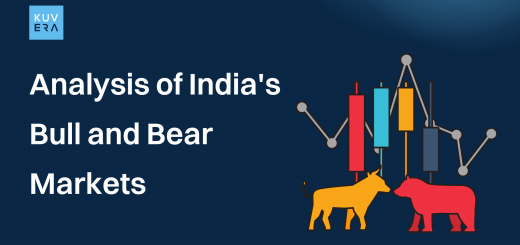Investing in the stock market is one of the best ways to secure your financial future. There is no quick and easy way to make money in financial markets. Long term investing is a tried and tested method of growing your wealth, where patience, commitment, and attentiveness are rewarded.
Many experts say that if you hold stocks with high potential for a long time, you will see them grow over time. They also suggest doing the appropriate research to look for the best stocks for the long term. To know how to pick such stocks, read through the following sections.
How to Invest in the Best Stocks for the Long Term Investment?
Many investors have trouble figuring out which investment works well for the long term. While there is no definitive method of knowing which stocks will perform well, you can follow several strategies to increase your chances of getting high returns. It involves looking at certain indicators and fundamentals, being disciplined, and focusing on long-term goals.
Given are some of the key identifiers for best shares for long term:
- Market capitalisation: This represents a company’s market value and amounts to the total price of all its outstanding shares. Stocks/shares with higher market caps (of around Rs. 10,000 crores) belong to well-established companies that are less prone to fluctuations.
- P/E ratio: The price-to-earnings (PE) ratio is the relationship between the current price of a stock and its earnings per share (EPS). The PE Ratio is a common tool for determining if a company’s stock is overvalued or undervalued. You can also compare a company’s PE ratio to its industry standard.
- Earnings growth: A positive earnings growth indicates that a company is doing something right. You can take a look at the company’s quarterly and annual financial reports to check its earnings.
- Operating profits and OPM: Operating profits of an organisation are the gains that come from its core business. The operating profit margin is calculated as the operating profit divided by sales revenue. It is a good indicator of a company’s long-term sustainability and financial health.
- Company’s relative strength: It is also important to take a look at the industry a company is in and check its growth potential. You can compare a company’s market share, profitability, market cap, stock performance, etc., against its peers.
How Do You Define Long Term Investment in Shares?
Long term investments refer to the strategy of keeping your investments for the long run, usually five years or more. This strategy works for investments such as stocks, mutual funds, and other securities. It has the potential to offer high returns over many years.
By carefully selecting a portfolio of the best shares for the long term and other mutual funds investments or bonds, you can earn substantial returns and fulfill your financial goals. While looking for the best shares to buy, you should research the company’s financials, management quality, etc., from a long-term perspective.
The share prices keep rising and falling regularly owing to the dynamic nature of the economic environment. In financial parlance, this is called market volatility, and experts consider it to be an unpredictable factor.
However, if you check the stock market trend on a year-over-year basis, you will notice that a downward trend rarely happens. This is the concept behind long term investments. If you stay invested in valuable stocks for a long time, you will see your money growing.
5 Reasons Why Long Term Investments in Stocks Is Healthy
The following are some of the reasons why many people choose long term investment in stocks:
- The power of compounding
Over time, your returns from investments compound over time. If you do not withdraw your returns midway, returns will accumulate, creating a multiplier effect on wealth creation. You can start investing early to create a large corpus over time.
- Helps you make more rational decisions
Often emotions can cloud your judgement when it comes to making investment decisions. However, long term investment in stocks takes the emotion out as a factor. This helps you avoid panicking when the markets correct in the short-term.
- Reduces your investment risks
The risks of losing your money are less in the case of long term investments than short term ones. Short term fluctuations in the market are way too frequent to gauge the performance of stocks and can result in losses. With long term investments, your stock has more room to grow.
- Diversified portfolio
It is always wise to not put all your eggs in one basket. With long-term investment, you get more time to expand your portfolio and balance losses as per your needs. You get time to think, monitor your investments, and buy more stocks for long term investment.
- Easier to correct mistakes
It is not uncommon for beginners to make mistakes in stock market investments. Long term investments give more time to take corrective steps if your decisions do not go according to plan. This is not possible for short term investments.
Essential Rules for Long Term Investments in Stocks
These are some of the essential rules to remember when buying stocks for long term investments:
- Understanding the risk of investments
To get a high rate of return, you may need to invest in riskier stocks. Safer investments often come with lower yields, so an investor needs to assess his/her own risk appetite to find the right balance of risks and returns. It is also important to remember that the stock prices can go up or down considerably.
- Diversifying your investment portfolio
There are no investment strategies that can guarantee returns in the stock market. That is why many investors diversify their portfolios to decrease risks. When you invest in stocks across various asset classes and sectors, losses from one investment usually get offset by gains from others.
- Returns for shareholders
When searching for stocks for long term investment, you might want to check ratios like ROCE and ROE. Return on Capital Employed (ROCE) measures how effectively a corporation uses its capital to create profits. It calculates profitability by taking into account fixed asset investments while ignoring borrowing costs. Return on Equity (ROE) is the percentage of a company’s net income that is returned to its shareholders as value. It assesses a firm’s efficiency at creating profit from capital provided by shareholders.
- Assessing the sector/industry segment
The sector/industry that a company belongs to has a strong impact on its ability to generate profits. If a sector has intense competition, it will experience great pressure on its profit margins. On the other hand, a company can become profitable if it manages to become a market leader in a niche.
- Economic cycle of the country
As the economy of a country develops, its production, income, and markets also grow. Some sectors, such as airlines, banking, housing, infrastructure, metals, etc., are cyclical in nature, and their performance is linked to the markets. Others such as IT, pharmaceuticals, and consumer staples are more resilient to economic cycles.
Essential Rules for Long Term Investments in Stocks
The following are some of the stocks that have given great performance in the long term as per their market capitalisation.
| Name of the Stock | Market Cap |
| Reliance Industries Ltd | Rs. 1,712,642.50 crore |
| Tata Consultancy Services Ltd | Rs. 1,257,268 crore |
| HDFC Bank Ltd | Rs. 1,249,445 crore |
| Infosys Ltd | Rs. 564,302 crore |
| ICICI Bank Ltd | Rs. 699,797 crore |
| Hindustan Unilever Ltd | Rs. 602,764 crore |
| ITC | Rs. 581,155 crore |
| State Bank of India | Rs. 551,764 crore |
| Life Insurance Corporation of India | Rs. 405,212 crore |
| Bharti Airtel Ltd | Rs. 507,209 crore |
| Bajaj Finance | Rs. 441,830 Crores |
* The above data is updated on Oct 1,2023, the data is subject to change.
- Reliance Industries Ltd: Reliance Industries Ltd, founded in 1973, is India’s largest private enterprise (having a market cap of 17.44 trillion) operating in diverse businesses including petrochemical, natural gas, energy, retail, telecommunication, mass-media and textile.
- Tata Consultancy Services Ltd: Tata Consultancy Services Ltd founded in 1968 is an India-based IT solution provider (having a market cap of 11.58 trillion). It includes banking, insurance, financial services, retail and consumer business, manufacturing, communication, life science, media and technology, health care and others.
- HDFC Bank Ltd: HDFC Bank Ltd founded in 1994 is an India-based private sector bank (having the market capitalization of 8.28 trillion). It offers a wide range of commercial and transactional banking services and treasury products to wholesale and retail customers.
- Infosys Ltd: Infosys Ltd founded in 1981 is an tech-based company (having the market cap of 6.17 trillion). It is an end-to-end business solution that offers business consulting, technology, engineering and outsourcing services.
- ICICI Bank Ltd: ICICI Bank Ltd is founded in 1994 is a banking company (having the market cap of 6.26 trillion). It offers a range of banking and financial services, including treasury operations, commercial banking and other banking.
- Hindustan Unilever Ltd: Hindustan Uniliever Ltd is an indian-based consumer goods company founded in 1933 (having the market capitalization of 6.04 trillion). It has leadership in Home & Personal Care Products, Foods and Beverages.
- Adani Green Energy Ltd: Adani Green Energy Ltd is an India-based company founded in 2015 ( having the market cap of 3.72 trillion). The company provides renewable energy and other ancillary services.
- State Bank of India: State Bank of India is an India-based banking and financial company founded in 1955 (having the market capitalization of 4.86 trillion). The company includes Banking, insurance business, corporate banking, treasury and retail banking.
- Life Insurance Corporation of India: Life Insurance Corporation of India is an insurance company founded in 1956 (having the market cap of 4.14 trillion) . The company engaged in the business of life insurance in and outside India.
- Bharti Airtel Ltd: Bharti Airtel Ltd is Asia’s leading integrated telecom service provider founded in 1995 (having the market capitalization of 4.43 trillion). It operates in 18 countries across Asia and Africa.
- Adani Wilmar Share Price: Adani Wilmar is an India-based Fast moving consumer goods company (FMCG) founded in 1999 (having the market capitalization of 908.31 billion). The company offers primary kitchen commodities, including wheat flour, edible oil, sugar, rice, etc.
Tips to Keep in Mind for Long Term Investments
Here are some tips you may want to keep in mind for long term investments:
- If your investment continues to perform poorly, it is important to be realistic about the prospect of losses. In such cases, there is no shame in recognising mistakes and selling off investments to avoid further losses.
- You should not accept investment tips from everyone. You must always make sure to do your own research regarding the fundamentals of a stock before investing your money.
- A company’s ability to consistently pay and raise its dividends usually shows that it has predictable earnings. Stocks with high dividend yields can be the best stocks for the long term as they can supplement your income.
- Ensure to check a company’s debt-equity ratio and consider the current economic scenario. In times of economic growth, debt can increase its profitability. However, companies with high levels of debt can experience problems during a bear phase.
- You should stay updated with the overall picture of the current economic state. This can tell you if the current markets have excessive optimism or pessimism. You can also understand if the markets are overbought or oversold.
- It is a good idea to be concerned about taxes, but it is not wise to make it the main factor behind making investments. While saving taxes is a good idea, achieving high returns should be your primary goal.
- Besides companies that are household names, there are various small and mid-sized companies that have high growth potential. Many of them have the ability to become blue-chip companies of tomorrow. These could be valuable stocks to buy for the long term.
- Investing requires you to make decisions for the future, but no one can predict what will happen. Therefore, you should not be completely focused on past data to make decisions.
Final Word
Investing in the shares for long term is one of the best ways to build wealth over time. What really matters is that you understand where you can invest for high returns. To do this, you will have to pick the best stocks for long term investment and not be scared out of the market when your investment value falls. Use a platform that makes investing simple and convenient. Visit Kuvera. in to find the best shares and other investments such as mutual funds and fixed deposits in one place.
Frequently Asked Questions
-
What are large cap and small cap stocks?
Large cap stocks are from businesses that are well-established and have a large market share. These companies have a market capitalisation of at least Rs. 20,000 crore. In contrast, small cap stocks are relatively small in size, with a market capitalisation of less than Rs. 5,000 crore.
-
What are dividends from stocks?
A dividend is a payment that companies make to their shareholders. It is a share of the company’s profits given to shareholders as a reward and to encourage further investments. Investors tend to view a steady dividend history as an indicator of profitable investments.
-
Is a higher or lower PE ratio better for stocks?
A higher PE ratio can indicate investors being willing to pay more for a particular stock. It can also be a sign that the stock is overpriced, and its price could fall. A lower PE ratio can mean an attractive valuation. A higher/lower PE ratio does not necessarily mean over or undervalued stocks and is best used with other financial ratios.
-
What factors affect stock prices in the Indian market?
Here are some of the factors that affect Indian stock prices:
-
- Policies of the Indian Government
- Monetary policies of the RBI
- Regulatory policies of SEBI
- Exchange rate of the Indian rupee against other currencies
- Current market interest rates
- Inflation
- Inflow/outflow from foreign investors
- Bond prices
- GDP of the country
- Movement of oil prices
-
How can you buy the best stocks for long term investment via Kuvera?
Follow the given steps to buy best-performing shares through the Kuvera app:
Step 1: Download the Kuvera app on your smartphone.
Step 2: Sign in or register (if you don’t have an account).
Step 3: Go to the ‘Invest’ section and click on ‘Stocks’.
Step 4: Use the given filters to select an investment.
Step 5: Click on a stock of your choice and click on ‘Buy’. Choose the broker and the number of stocks you want to buy.
Interested in how we think about the markets?
Read more: Zen And The Art Of Investing Watch/hear on YouTube:
Start investing through a platform that brings goal planning and investing to your fingertips. Visit kuvera.in to discover Direct Plans and Fixed Deposits and start investing today.












Kabir
August 1, 2023 AT 11:53
Insightful. What about long term mutual funds?
Asefa Hafeez
August 8, 2023 AT 13:00
Here is a blog on the same Kabir, Best Mutual Funds to Invest in for Long Termhttps://kuvera.in/blog/what-are-the-best-mutual-funds-for-long-term-investors/